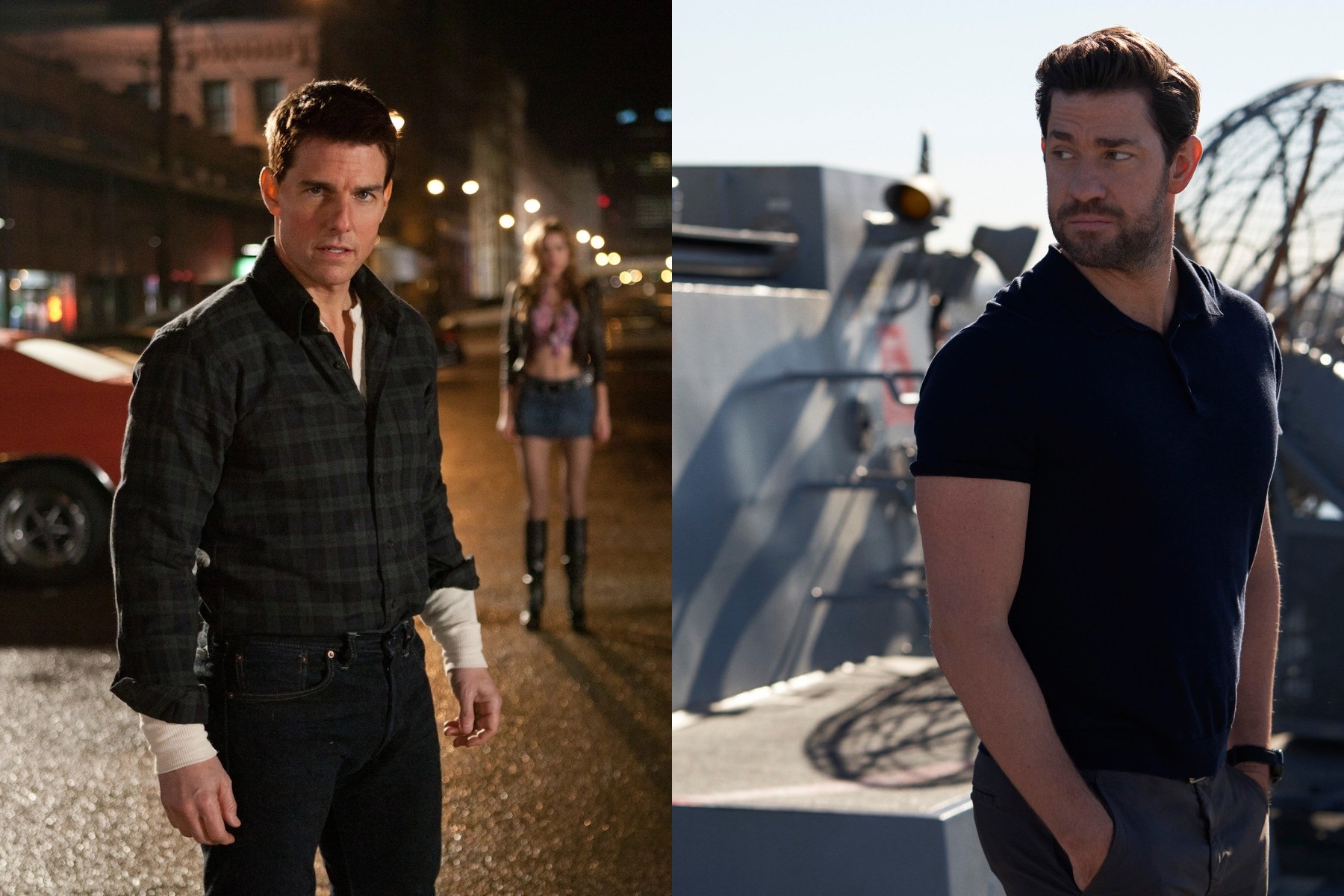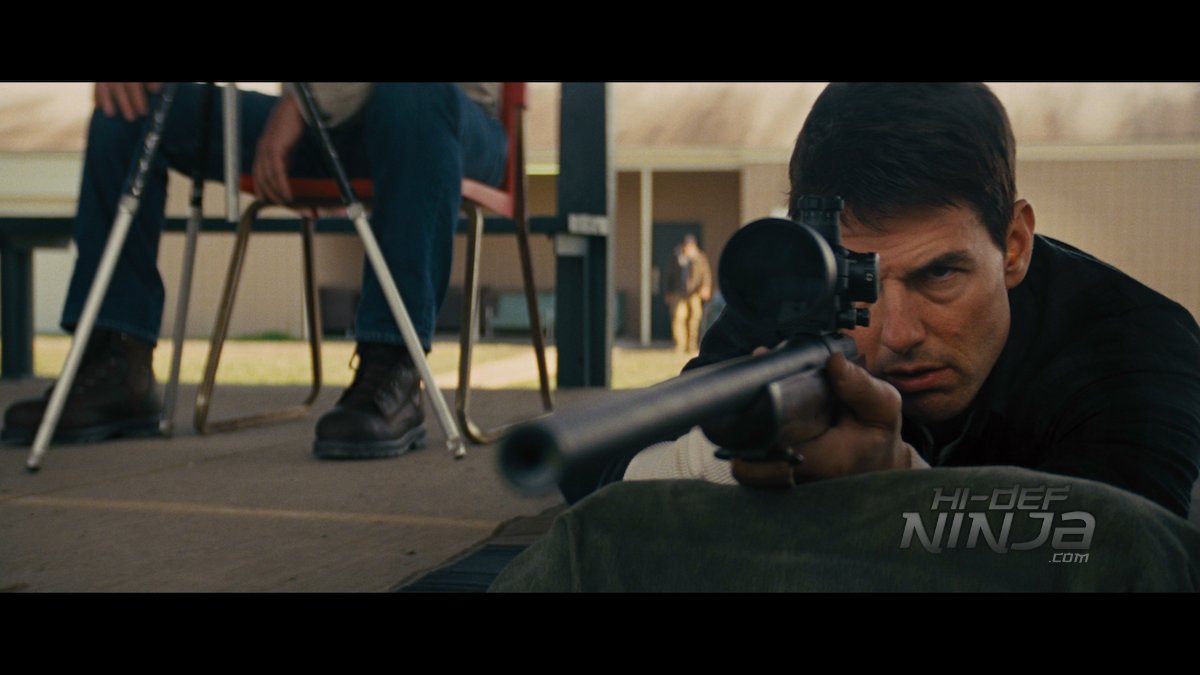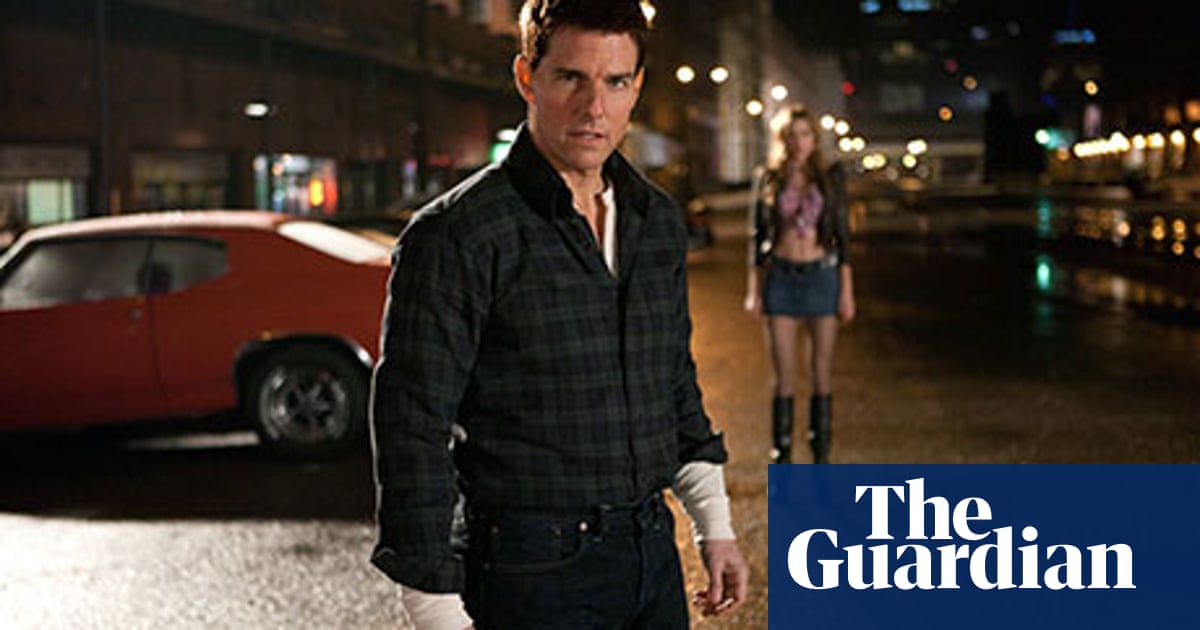Who Would Make A Good Jack Reacher
- Jack Reacher Movies In Order
- Who Would Make A Good Jack Reacher Movies
- Who Should Have Been Jack Reacher
- Who Would Make A Good Jack Reacher Movie
YOU KNOW HOW, when you roll into a small town for the first time, in search of a slice of pie and a decent cup of coffee, you inevitably uncover a byzantine and nefarious criminal conspiracy, perhaps concerning Russian spies and Nazis? And your sense of justice and your MMA-style fighting skills demand that you stick around long enough to expose the evildoers, protect the innocent, and kick a whole lot of ass?
- Jack Reacher (Tom Cruise). Reacher may lack the self-questioning complexity of Smiley or the queasy nuance of Patricia Highsmith’s Tom Ripley, but Child makes his simplicity a virtue. Reacher is Jason Bourne without the Sophoclean psychology and heroic quest.
- The director of Jack Reacher did have a good time working with Cruise apparently but has admitted that Cruise was not his first choice for the role since Tom is not a big man, there’s not that.
- Make Me is the 20th in Lee Child's Jack Reacher series and a good one. This time he is paired with Michelle Chang, ex-FBI and now a private investigator. I really enjoy reading about Reacher's relationship with women. The series always has strong female partners. Jack Reacher respects women for their intelligence among others attributes.
OK, that probably hasn’t happened to you more than once. But it happens to Jack Reacher all the time. Lee Child’s ex-military drifter-hero is framed for murder in a small Georgia town in the first book of the best-selling series, 1997’s Killing Floor, and he goes on to find trouble with a capital T in sleepy flyover hamlets across America—“tiny polite dots” on the map, as 2019’s Blue Moon has it—in eleven of the subsequent novels, including The Sentinel(Delacorte Press, $29), the first to be cowritten with the author’s brother, Andrew Child, who will take over the series after this installment.

This twenty-fifth Reacher novel is the twenty-fifth I have read. Jack Reacher, former military cop, for whom there is no problem that can’t be solved with a well-timed headbutt, is not the sort of person I would hang out with. But what can I say? I like action movies. (Including the two movies, improbably starring the elfin Tom Cruise as the hulking Reacher, made from Child’s novels.) And Child writes the best action movies you can find between two covers today (although I read the last several on my iPad).
String together jacket descriptions of some previous Reacher outings, and you get a sense of The Sentinel and of the series as a whole: “One heartland city thrown into a state of terror.” “It wasn’t the welcome Reacher expected. He was just passing through, minding his own business.” “Jack Reacher is an innocent bystander when he witnesses a woman kidnapped . . . in broad daylight.” “Now, between a town and the man who owns it, between Reacher and his conscience, something has to give. And Reacher never gives an inch.” “Staging a brilliant ruse, Reacher hurtles into the dark heart of a vast criminal enterprise.” “One brave woman is standing up for justice in a small town threatened by sinister forces.” “There’s deadly trouble in the corn county of Nebraska . . . and Jack Reacher walks right into it.” “Jack Reacher never turns back. It’s not in his nature. All he wants is a cup of coffee. What he gets is big trouble.”
Jack Reacher Chronological Order Series 26 primary works. 36 total works Not the order of release, but the Reacher books and stories chronologically, from his youth to his adulthood. Some day they’ll refer to this as Jack Reacher’s Plains period. Story after story here, with a couple of diversions for flashbacks, has been rooted in the vast flatness of the Midwest - North Dakota, Nebraska, Kansas, Oklahoma, Colorado - in towns so small the nearest police are 50 miles away.They’re surrounded by endless fields of corn or wheat.
No one in the history of the world has randomly stumbled onto as many kidnappings as Jack Reacher, who once again thus stumbles, wanting only a cup of coffee, at the beginning of The Sentinel. Implausible, sure. A radioactive spider’s bite bestows spider powers on a teenage boy; a woman unweaves a burial shroud every night for three years without any of her suitors getting suspicious. We tell ourselves stories in order to tune the fuck out, sometimes.
So there Reacher is, fresh in town after hitching a ride from Nashville with an insurance agent, when he sees some heavy operators trying to force an ordinary schlub into a Toyota sedan. Except he doesn’t see them. Being Reacher, he senses the plan unfolding before it happens, apparently drawing on genetic memory. He’s headed for the coffee shop as the schlub, one Rusty Rutherford, leaves it:
Reacher didn’t pay him much attention at first. He was just a guy, small and unremarkable, holding his to-go cup. . . . But a moment later Reacher’s interest ratcheted all the way up. He felt a chill at the base of his neck. A signal from some ancient warning system hardwired into the back of his brain. An instinctive recognition. Pattern and movement. Predators circling. Moving in on their prey. Two men and a woman. Spread out. Carefully positioned. Coordinated. Ready to spring their trap.
What chance do the heavy operators have against Jack Reacher’s hardwired spider-sense? No more chance than a complete sentence has against Reacher’s free indirect discourse.
And then we’re off to the races. It transpires that the schlub, the town’s erstwhile IT manager, has been framed for a ransomware attack that brought the town to a digital standstill. And some nasty characters want him off the board for reasons that are unclear. A mystery is afoot, with machinations to boot, involving Russians and software and Nazi MacGuffins and double agents and double crosses and triple crosses.

Which is all to the good. It doesn’t matter that we’re not exactly dealing with John le Carré and George Smiley here. Child has a very particular set of skills. Skills he has acquired over a very long career. Skills that make him a nightmare for readers who have to get up in the morning. He knows that we know that Reacher will yet again prevail against impossible odds, so it’s the details of each confrontation that matter. With what displays of brio shall our hero sally forth this time, deploying what forms of efficient brutality?
Jack Reacher Movies In Order
Reacher may lack the self-questioning complexity of Smiley or the queasy nuance of Patricia Highsmith’s Tom Ripley, but Child makes his simplicity a virtue. Reacher is Jason Bourne without the Sophoclean psychology and heroic quest. He’s just real good at getting there first, whether “there” means anticipating an opponent’s moves or deducing the nature of a conspiracy from the scantest of clues. “Turn around,” he mentally urges Rutherford when he first spots him being trailed. “Ignore the gym rats. Notice the guy who’s pursuing you.” “I notice things,” he says in The Hard Way (2006). “I notice things,” he says in 61 Hours (2010). He’s the kind of guy who, without trying, memorizes the make, model, color, and license plate of every car in the parking lot. He can’t even pull into a storage facility like a normal person:
Each [building] had a red letter stenciled on the end wall, high up in the angle of the roof. A was level with the office. E was all the way to the left. For a moment the order bothered Reacher. He would have preferred A to E. Not E to A. Then he figured they must have started out with one unit, at the right-hand side of the lot to correspond with the access to the road, then worked their way left as they expanded.
When he’s in a fight, which is like 60 percent of the time, he’s analyzing, calculating, two or three moves ahead. I’m sure my taste for this sort of thing has nothing to do with childhood revenge fantasies in which I bested my bullies.
Apparently two Childs are as good as one, as I wouldn’t have known The Sentinel was coauthored if it didn’t say so on the cover. As ever, the prose is utilitarian, no cream or sugar, like Reacher’s coffee. Words impart information. Sentences tell you what is happening. At one point, Reacher faces down six white supremacists, so within seconds there are six white supremacists writhing on the ground:
The other guy was trying to crawl away, so Reacher went after him and kicked him in the head. Normally he would have used his left foot in a situation like that, where the guy was already down. His weaker foot. But this guy was a Nazi. So he used his right. And he didn’t hold back.
This happened, so that happened, he would have done this, but he did that, and he did it like this. Nothing fancy: that’s the way to write a good thriller. I recently failed to finish a thriller by Dean Koontz, for whom “spiderweb” is how philistines refer to “the radials and spirals of a spider’s architecture,” while “rumpled-laundry clouds” “darken to coralline” and “gray into woolpack.”
Who Would Make A Good Jack Reacher Movies
Of course there are nits to pick. Reacher is supposed to be a math whiz, but he believes that “forty-eight hours” is three words. The bad guys are awfully gullible this time around. If Reacher signals that they should roll down the window so he can toss an improvised chemical bomb into their car, or drive into an alley so he can beat them up, they do. “You’ll believe a man can fly,” read the posters for Richard Donner’s 1978 film Superman. You won’t, but that’s not why you go to the movies.
THERE ARE AUTHORS who don’t so much muddy the distinction between “genre” and “literary” fiction as prove it illusory: le Carré, Highsmith, Eric Ambler, Ursula K. Le Guin, Graham Greene, John Crowley, Samuel Delany, Gene Wolfe, Larry McMurtry. There’s not a spectrum with Proust at one end and Nicholas Sparks at the other. There are only the different things we want from books, the different reasons we come to them at different times. The Childs write escapist action fantasy, which is one thing I’ve wanted from fiction since The A-Team was on the air.
For many people, what we read is bound up with a sense of who we want to be. In high school I wanted to be a certain kind of person, so I already knew I was going to read all the Big Serious Novels—Ulysses, War and Peace, Moby-Dick, Middlemarch, Gravity’s Rainbow, In Search of Lost Time, The Brothers Karamazov. Because you had to read them if you wanted to be that kind of person. That’s a perfectly human reason to read, at least initially, but actually reading these books teaches you that it’s a reason best left behind. Auden quips that “the adolescent . . . has to pretend that he enjoys . . . War and Peace a little more than he actually does.” And once you’ve become the kind of person who really does enjoy War and Peace, maybe you can also get to the point where when someone asks you what you’re reading and you say Jurassic Park or The Hunger Games, you don’t feel the need to make excuses. War and Peace can be really fucking boring. And I never finished In Search of Lost Time, but I’ll be reading the twenty-sixth Jack Reacher novel.
Michael Robbins is the author of the poetry collections Alien vs. Predator (2012) and Walkman(forthcoming, both Penguin) and the essay collection Equipment for Living: On Poetry and Pop Music (Simon & Schuster, 2017). He is an associate professor of English at Montclair State University.

Tom Cruise has done pretty much everything you can do as an actor short of winning an Academy Award, though many believe the three-time nominee (for 1989's Born on the Fourth of July, 1996's Jerry Maguire, and 1999's Magnolia) probably should've taken home at least one of those too. Nevertheless, Cruise remains one of the biggest movie stars on the planet with the resurgent Mission: Impossible series (one of those franchises that just kept getting better) revitalizing his popularity in ways even he might not have anticipated.
But Mission: Impossible merely one of many blockbuster properties he's fronted. There's little question the Jack Reacher films rank among the most overlooked in Cruise's action oeuvre. Based on a beloved series of novels from author Lee Child, those films found Cruise stepping into the title role as a former Military Police Investigator-turned-drifter who occasionally takes up high-stakes investigatory work when the right cause arises.
The first Reacher film arrived in 2012 with Cruise's current Mission: Impossible bestie Christopher McQuarrie at the helm. While it didn't quite become the box office sensation many anticipated, the film was more than successful enough to merit a followup. Jack Reacher: Never Go Back arrived in 2016 with another Cruise collaborator Edward Zwick (The Last Samurai) calling the shots. Unfortunately, many critics boasted everyone involved would've done well to follow that title's advice. Critical drubbing aside, Never Go Back still did solid enough at the box office that many assumed a third film would soon follow.
Despite recent teases from McQuarrie that he and Cruise had developed a Hard-R-rated concept for Jack Reacher 3, the film never materialized. Sadly, we now know it never will.
Jack Reacher 3 is not happening, but Reacher will return on Amazon Prime
Despite the Jack Reacher film's relative box office success, it's not a shock that Tom Cruise won't be returning. He has, after all, dedicated the bulk of his time lately to filming movie scenes that nearly kill him for his Mission: Impossible flicks. In his downtime, Cruise recently even returned to his Top Gun roots for the yet-to-be released sequel Top Gun: Maverick. He'll soon be blasting off into actual outer space for an as-yet untitled Space X movie too. So to say the actor is spreading himself thin these days might be an understatement.
On top of that, Jack Reacher creator Lee Child was never a particular fan of Cruise's casting in the title role, telling BBC Newsin 2018 he believed Cruise's stature didn't closely enough match the brute-force physicality of his creation. 'Cruise, for all his talent, didn't have that physicality. I really enjoyed working with Cruise. He's a really, really nice guy. We had a lot of fun. But ultimately, the readers are right. The size of Reacher is really, really important, and it's a big component of who he is ... the idea is that when Reacher walks into a room, you're all a little nervous just for that first minute.'
Such as it was, when Amazon Studios announced a Jack Reacher TV series in the works for Amazon Prime Video, they also announced the title role would indeed be recast. Producers later confirmed super-brawny Titans star Alan Ritchson had won the coveted role, officially bringing Cruise's reign as Jack Reacher to an end (via Deadline).
Cruise and McQuarrie are still developing that R-rated concept though
Who Should Have Been Jack Reacher
That Jack Reacher recasting news was a legit bummer, as Cruise's and McQuarrie's Hard-R take on the subject sounded genuinely intriguing. It also would've more closely resemble the graphic nature of Child's source material. Either way, the free-reign streaming treatment likely means Amazon Studios will beat Cruise and McQuarrie to the R-rated punch for Jack Reacher.
The good news is that Cruise and McQuarrie are still looking to tackle such cinematic territory in Hard-R fashion. In a 2020Empire interview, Christopher McQuarrie teased that the pair were working on an action flick that would present Cruise to audiences in a way they'd never seen. 'It's a very un-Tom character, and we have plans for an even more un-Tom character that we've been talking about, which I'm hopeful about in the future. The franchise has moved on, and we haven't. So we've now got stuff in the hopper. The [Jack Reacher] stuff we're talking about now is tinker toys [compared to it], I'm actually very, very excited.'

Who Would Make A Good Jack Reacher Movie
Given McQuarrie also teased the inspiration for the project came via films like Deadpool and Joker, it seems Cruise is looking to break even badder than he did in Michael Mann's underrated 2004 thriller Collateral. Should that be the case, we're all in to see what he brings to the role. As for McQuarrie, anyone who's seen his equally underrated 2000 film The Way of the Gun knows he's got a flair for colorful language and violent action few can rival. Here's hoping the duo get that R-rated project before cameras sooner rather than later.